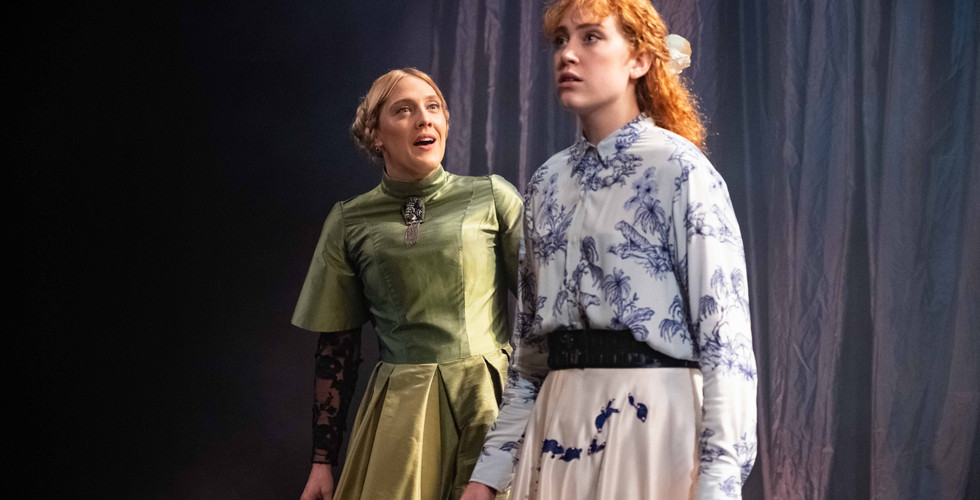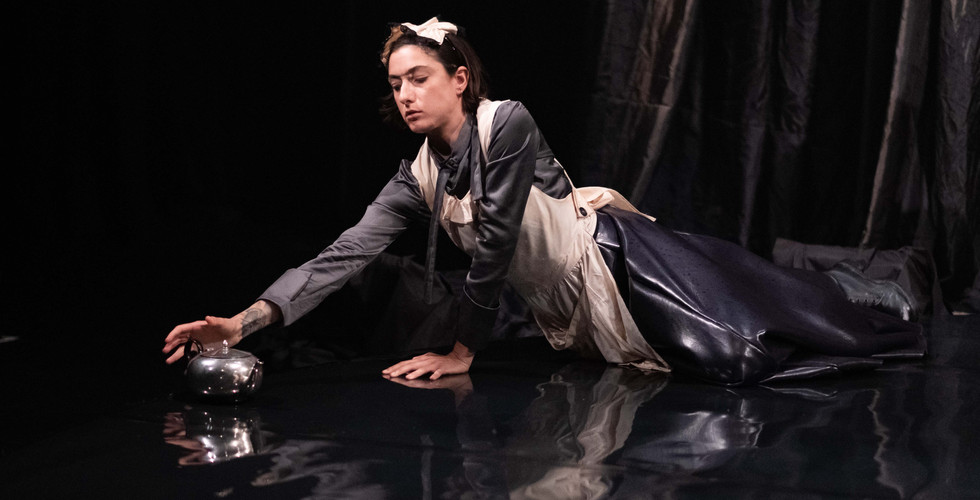By Fred Pryce
“The moors are a savage place… despite our attempts cling to a modicum of civilisation, we find ourselves often forced to contend with savagery.”
The stage of The Moors, a Jen Silverman play now playing at the Seymour Centre, is also a savage place, though much more funny than that might suggest. In fact ‘the moors’, referring to swathes of uncultivated and unfriendly hills that surround the manor where the play takes place, is more of an abstract place, a metaphor for the bleak landscape of love and humanity, as well as a vague send-up of settings for many a classic gothic novel. In this desolate wasteland of the 1800s we meet two sisters: Agatha (Romy Bartz), a delightfully cruel mistress and de facto head of the household, and Huldey (Enya Daly), a bubbly dreamer who delights in reading her diaries, and dreams of darkness and violence (today, you might find her writing fanfics on Tumblr). There is also a maid who changes identities and ailments on a whim, their dog, who only wishes for someone to sit down and talk to him for a while, and a naive governess who wanders in at the invite of the house’s master. But where is he? Dead, or maybe something worse? What follows is a descent into deception, farce, and psychosexual power games.
This perhaps makes it seem more intricately plotted than it is. More than anything, it’s a chance to spend time with some superbly rendered characters, the whole cast teetering brilliantly on the edge of caricature. Director/producer Kate Gaul has pushed grandiose theatricality to a small-scale extreme, a huge curtain bedecking a revolving stage platform. The constant rotation makes every pause and interaction into an event, the ceaseless melodrama creating moment after moment of hilarity, as actors interact in Silverman’s combination of old-style fustiness and contemporary stylings. And despite the focus on comedy, there are bigger ideas at work—everybody wants to be seen and recognised by someone else, every character united by their desperate loneliness. The play is also unabashedly kinky, queer, and feminist (three traits seen through the only male character, a dog who is ignored and belittled). These strains are smartly integrated into the period context without contemporary indicators, subtly reclaiming countless gothic stories from dusty, heteronormative expectations.
There are a few stumbles, too. With the plot being as thin as it is, the play peters out and begins to drag while we await the final revelations, before it ends abruptly, having the good sense to pack in everything tightly and not overstay its welcome. There is also a song performed via lip sync that feels awkward and incongruous to the rest of the show, without really adding anything of value to it. This mistake is later highlighted/redeemed by a climactic, high-energy song and dance that absolutely brings the house down, revelling in its own weirdness and audacity to become the show’s highlight (congratulations to Daly). For anyone remotely intrigued by Brontë-ish period pieces and dark, subversive comedy (or if you caught The Favourite in theatres and loved it), The Moors is a must-see.
Photo Credit: Clare Hawley
All opinions and thoughts expressed within reviews on Theatre Travels are those of the writer and not of the company at large.



































